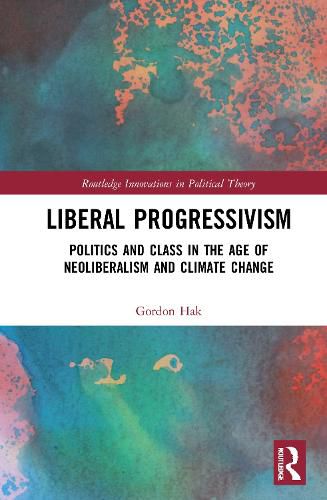Readings Newsletter
Become a Readings Member to make your shopping experience even easier.
Sign in or sign up for free!
You’re not far away from qualifying for FREE standard shipping within Australia
You’ve qualified for FREE standard shipping within Australia
The cart is loading…






In Liberal Progressivism, Gordon Hak makes the case for the value of theory and philosophy in understanding the day-to-day political realm of elections, politicians, scandals, fund-raising, and law-making. Running through the book is the big question of how political attitudes and actions are philosophically grounded: why do people believe what they do?
Framed as a debate between liberal progressivism and the Marxist-informed left, and between liberal progressives and the non-university-educated working class, an informant named Gord is introduced. Drawing on his life experience he acts as a guide into the worlds of liberal progressivism, the non-university-educated working class, and the Marxist-informed intellectual-left modes of existence that he has personally experienced. In 11 chapters, the book presents an appreciation of nonbinary relationships, open-ended dialectics, complex systems and equilibrium theory, and the importance of emotions in political life.
Through a transdisciplinary approach, the book delves into the interconnecting the worlds of politics, philosophy, anthropology, sociology, history, and epistemology to produce a celebration of political theory which deserves to be widely read by students, scholars and activists.
$9.00 standard shipping within Australia
FREE standard shipping within Australia for orders over $100.00
Express & International shipping calculated at checkout
In Liberal Progressivism, Gordon Hak makes the case for the value of theory and philosophy in understanding the day-to-day political realm of elections, politicians, scandals, fund-raising, and law-making. Running through the book is the big question of how political attitudes and actions are philosophically grounded: why do people believe what they do?
Framed as a debate between liberal progressivism and the Marxist-informed left, and between liberal progressives and the non-university-educated working class, an informant named Gord is introduced. Drawing on his life experience he acts as a guide into the worlds of liberal progressivism, the non-university-educated working class, and the Marxist-informed intellectual-left modes of existence that he has personally experienced. In 11 chapters, the book presents an appreciation of nonbinary relationships, open-ended dialectics, complex systems and equilibrium theory, and the importance of emotions in political life.
Through a transdisciplinary approach, the book delves into the interconnecting the worlds of politics, philosophy, anthropology, sociology, history, and epistemology to produce a celebration of political theory which deserves to be widely read by students, scholars and activists.